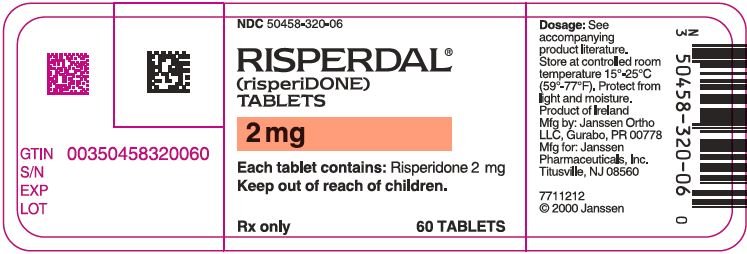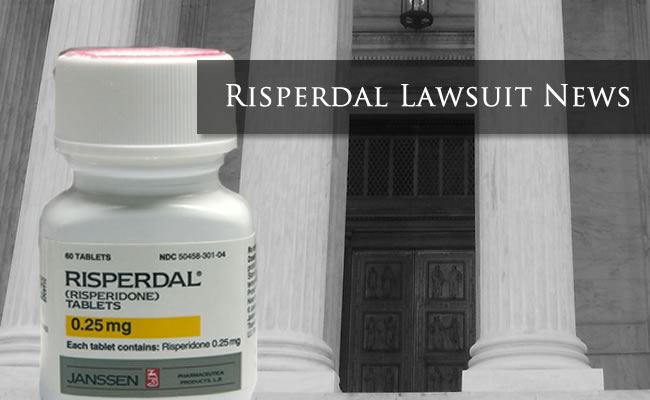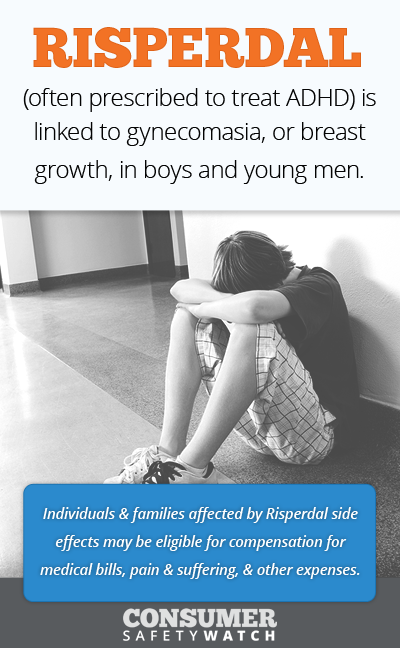
RISPERDAL:
The drug was approved, by the FDA, for public use in 1993, to treat
schizophrenia, a “mental disorder” for which there is no defining
diagnostic test. No blood test, no saliva test, no brain scan, no
genetic assay.
In 2006, the FDA approved Risperdal to treat “irritability” in
autistic children. There is no defining diagnostic test for autism.
The neurological damage involved can come from any cause—especially
vaccines. But of course, all public health agencies deny this fact.

In 2007, the FDA approved Risperdal to treat bipolar disorder in
children between the ages of 10 and 17. Bipolar is another “mental
disorder” for which there is no defining diagnostic test.
Risperdal was approved to treat three conditions, which are diagnosed
by casually observing a patient’s behavior and comparing it to a menu
of behaviors called schizophrenia, bipolar, and autism.
If the drug had no adverse effects, that would be one thing; but it
has devastating effects. Tardive dyskinesia, a permanent “movement
disorder” that signals brain damage. Suicide. Gynecomastia—boys grow
female breasts.
2012: J&J fined $1.2 billion for hiding adverse effects of the drug. Decision overturned on appeal.

2012: J&J paid out $181 million for actively promoting off-label
uses for Risperdal. Doctors are permitted to prescribe a drug for
unapproved uses, but drug companies cannot legally promote or urge
doctors to wander into that off-label territory.
2015-2016: There are at least 1500 suits against J&J for causing
boys to grow female breasts. Thus far, three verdicts have been decided
in favor of the boys, for $1.75 million, $2.5 million, and $70 million.
The story of Risperdal expands and explodes when we consider the
marketing effort behind it. Basically, the hustle involved claims that
the drug could be used to treat a wide array of so-called disorders in
children.
I will now quote extensively from a classic article written at madinamerica.com, by Paula J Caplan, PhD. The title of her article (10/30/2015) is “Diagnosisgate: A Major Media Blackout Mystery”:

“Until their identities are widely exposed, and their motives are
known, the full story of the [Risperdal] harm will never be known. It is
astonishing that despite six stories in the major media — including a
recent, groundbreaking Huffington Post series — and the filing of numerous lawsuits, the names and conduct of the culprits have consistently been omitted.”
“The story that has been called ‘Diagnosisgate’ starts in 1995, when
the man widely considered the world’s most important psychiatrist split a
payoff of nearly one million dollars with two colleagues in exchange
for doing two patently unethical and illegal things that created the
groundwork for a major drug company to market falsely one of the most
dangerous psychoactive drugs [Risperdal].”
“Part one: In return for almost half a million dollars, they ignored
what was known about the drug [Risperdal] in order to manufacture a
practice guideline holding up that drug as the best drug among two whole
classes of related drugs for treating people who were classified as
‘schizophrenic,’ the other drugs being marketed by other drug companies.
This created what is widely considered the ‘standard of care,’ the
treatment that therapists are supposed to follow and that they can use
in the knowledge that they are well protected from lawsuits if they
follow it and their patients are harmed. The very foundation of the
guideline, that it was about ‘Schizophrenia,’ is illegitimate, because –
though this will surprise many people – that category has been shown to
be unscientifically created and indeed has been called a wastebasket
for a wide variety of feelings and behavior, many of which are caused by
psychiatric drugs.”
“Part two: After the triumvirate received a bonus of $65,000 for
creating the guideline [‘treat schizophrenia with Risperdal’] speedily,
their top psychiatrist wrote to the same drug company, announcing that
the three had constituted themselves as an entity that was prepared, in
return for about another half million dollars, to create a marketing
plan for the drug. The details included finding ‘key opinion leaders’
(KOLs), who were prominent professionals in powerful positions – such as
heads of state mental health or prison systems – and having them teach
the Continuing Education courses that professionals are required to
take, the ultimate message of those courses being that that particular
drug [Risperdal] was the best one to prescribe. Another section of their
marketing plan was to have a great many articles published in what are
considered scientific or medical journals, all concluding that that drug
was effective and should be prescribed.”
“It is not clear whether the three psychiatrists were directly
involved in choosing the content of the journal articles, but the plan
to produce such articles was carried out, leading to publication of
pieces recommending use of the drug [Risperdal] to treat not only
Schizophrenia but also Childhood Onset Schizophrenia, Schizo-affective
Disorder, Bipolar Disorder in Children and Adults, Mania, Autism,
Pervasive Developmental Disorder other than Autism, Conduct Disorder,
Oppositional Defiant Disorder, Psychosis, Aggression Agitation,
Dementia, below average IQ, and disruptive behavior. Thus, a staggering
array of psychiatric categories – many of which are as scientifically
sketchy as Schizophrenia – was used to promote the drug. This massive
marketing campaign proceeded despite the many major negative effects of
Risperdal, including drowsiness, dizziness, nausea, vomiting, diarrhea,
constipation, heartburn, dry mouth, increased saliva production,
increased appetite, weight gain, stomach pain, anxiety, agitation,
restlessness, difficulty falling asleep or staying asleep, decreased
sexual interest or ability, vision problems, muscle or joint pain, dry
or discolored skin, difficulty urinating, muscle stiffness, confusion,
fast or irregular pulse, sweating, unusual and uncontrollable movements
of face or body, faintness, seizures, Parkinsonian symptoms such as slow
movements or shuffling walk, rash, hives, itching, difficulty breathing
or swallowing, gynecomastia in male children, painful erection of
penis lasting for hours…and death.”

“Who are the characters in this mystery? Janssen Pharmaceuticals, a
division of Johnson & Johnson, is the drug company, and Risperdal is
the drug in question. The marketing term for Risperdal and similar
drugs is ‘anti-psychotic,’ but the accurate term is ‘neuroleptic,’
reflecting the mechanism of suppressing the brain’s activity as a
powerful tranquilizer. Dr. David Rothman, who wrote the expert witness
report for one of the lawsuits about the marketing of Risperdal,
revealed after scrupulous examination of vast numbers of internal emails
between Janssen staff and the representative of the three
psychiatrists, is a specialist in medical ethics and the Bernard
Schoenberg Professor of Social Medicine at Columbia College of
Physicians and Surgeons, the medical school of Columbia University. He
is also director of the Center for the Study of Science and Medicine at
Columbia and at the time of writing his expert witness report was
president of the Institute on Medicine as a Profession. Rothman stated
in his report that the [treatment] guidelines [for Risperdal] were
constructed ‘in disregard of professional medical ethics and principles
of conflict of interest,’ and that they ‘subverted scientific integrity,
appearing to be a purely scientific venture when it was at its core, a
marketing venture for Risperdal’.”
“The psychiatrist who spearheaded these [Risperdal marketing] efforts is Dr. Allen Frances,
who the year before teaming with Janssen oversaw the publication of the
fourth volume of the ‘Bible’ of hundreds of categories of mental
illness, Diagnostic and Statistical Manual of Mental Disorders,
sales of which topped $100 million as a result of marketing by the
lobby group called the American Psychiatric Association, which published
it. By virtue of this position, he has been called the world’s most
important psychiatrist. At the time, he was also Chair of the Department
of Psychiatry at Duke University. The two psychiatrists who with
Frances shared the nearly $1 million in payments from Janssen are Dr. John P. Docherty, who was then Professor and Vice Chairman of Psychiatry at Cornell University at the time, and Dr. David A. Kahn, who was Associate Clinical Professor of Psychiatry at Columbia University.”

“Now back to the mystery: Despite five individual stories in major
media outlets in 2011, 2012, and 2014 about two huge Risperdal court
cases filed by the state of Texas and joined by many other states,
neither a single writer of any of these stories nor even the papers
filed for the court cases named Frances, Docherty, or Kahn or described
the fundamental roles played by their Practice Guideline and their
marketing plan in the scandal. The mystery is deepened, because the
authors of the media stories and the court documents did name and
describe the roles of some of the KOLs [key opinion leaders], who
assuredly were guilty of unethical conduct but whose participation was
conceived of by Frances and his colleagues. And some of those who reaped
huge financial profits from Risperdal’s false marketing – most notably
Harvard University’s Dr. Joseph Biederman, who created an empire based
on claims that ‘Bipolar Disorder in Children’ had been woefully
underdiagnosed and untreated – have been royally outed for the enormous
sums they earned. But even respected investigative journalist Steve
Brill, who recently completed a unique, 15-part story of the Risperdal scandal for Huffington Post,
and who described in detail many of its players and some of the
patients who suffered terrible harm from the drug and who elegantly
described the way that Janssen covered up data about some of the harm,
left out the essential roles the Frances triumvirate played. Activist
Vera Sharav of the Alliance for Human Research Protection published an online article
about the Rothman Report and included the names of Frances and those
two colleagues, her article was apparently picked up by only two or
three bloggers and none of the major media reporters who read what she
posts.”
There is more. Much more. I suggest you read Caplan’s entire article. In a half-sane world, she would have been awarded the highest possible honors for her work.
Risperdal. The long and winding trail. The severe damage. The hustle, the con. The crimes.
The lack of criminal prosecutions.
Brought to you by high authorities in the psychiatric profession and their allies.
repost:https://jonrappoport.wordpress.com/2017/05/09/risperdal-the-long-and-winding-trail-of-crimes/
No comments:
Post a Comment